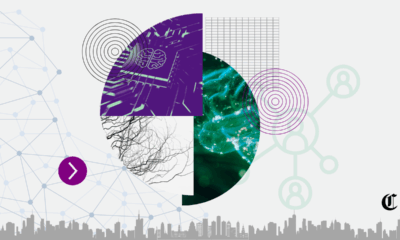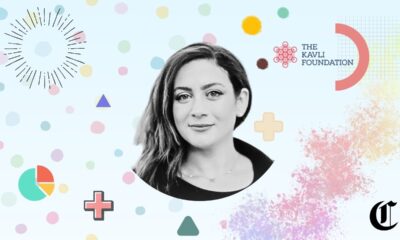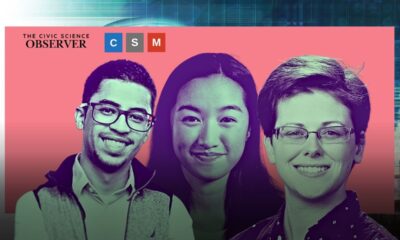Stories in Science Special Series
From engrams to psychiatric disorders and back

– Steve Ramirez –
– Principal Investigator | Center for Brain Science| Harvard University –
[dropcap]I[/dropcap]‘m often asked how I got into neuroscience, so here’s the story. In college, I was one of those students who loved every subject, from Shakespeare to biochemistry to physics — which is a roundabout way of saying I had no idea what I wanted to do with my life. I was volunteering in a lab just to see what research really entailed, and one day a centrifuge broke. I went to the lab across the hall to ask if we could use theirs and, serendipitously, a girl who I had a crush on sophomore year was standing there using it. Naturally, I started sweating and thinking of one billion ways to open up a conversation without instantly passing out, and centrifuge dynamics seemed like the most romantic topic at the moment. We started chatting about our lack of majors, classes taken, etc, and given my broad interests, she pointed me in the direction of a guy who she thought might help — he would soon become the director of Boston University’s undergraduate neuroscience program (which didn’t exist at the time).
I learned that research was incredibly hard, incredibly rewarding, and incredibly social.
After one conversation with him, it clicked. “Why not study the organ that’s produced everything that’s ever been produced?” he asked. From Hamlet to vaccinations to satellites flying past Pluto, all of these achievements were the product of the most multi-disciplinary organ known: the brain. It was the common denominator across all my interests. Within a few weeks, I began working in Howard Eichenbaum’s lab with Chris MacDonald studying time cells and memory, and research quickly had me hooked. The lab’s high-octane enthusiasm and collaborative approach to science was contagious and inspiring. I learned that research was incredibly hard, incredibly rewarding, and incredibly social. I was all in with neuroscience.
In my opinion, it was a privilege to discover for a living; and, each day felt more like a roundhouse kick to the adrenal glands
However, I was never a 4.0 GPA person and according to my GRE scores, I can barely speak english or do long division, but that’s why research made sense to me: these numbers don’t matter in a world of asking questions, testing hypotheses, and observing brains in action. All that matters here is hard work and good luck. Given my test scores, it still feels like a miracle that MIT decided to accept me into their program. From day one onward, graduate school simultaneously was as humbling as it was invigorating. In my opinion, it was a privilege to discover for a living; and, each day felt more like a roundhouse kick to the adrenal glands (in the best way) and less like a stiff formal job.
I went on to earn my Ph.D. in Susumu Tonegawa’s lab at MIT by working alongside Xu Liu and studying the cellular basis of memories. I worked with a team that I fully admire, aspire to represent, and am endlessly thankful for. Our team was full of camaraderie, mutual respect, wide-eyed ambition, and manhattans — the stuff of science indeed. And finally, today, with Joshua Sanes’ endless mentorship, I am a Junior Fellow and Principal Investigator at Harvard’s Center for Brain Science studying the cellular and circuit-wide basis of memory, as well as how to leverage artificially modulated memories to alleviate maladaptive states. For all this, I have a centrifuge to thank.
The Ramirez Group
Steve Ramirez’s Ted Talk
Can This Guy Zap Away Your Bad Memories?
Featured Image (original) is by Ars Electronica and is titled “Human brain illustrated with millions of small nerves” | From Flickr | Some rights reserved
The CS Media Lab is a Boston-anchored civic science news collective with local, national and global coverage on TV, digital print, and radio through CivicSciTV, CivicSciTimes, and CivicSciRadio. Programs include Questions of the Day, Changemakers, QuickTake, Consider This Next, Stories in Science, Sai Resident Collective and more.

-
Audio Studio1 month ago
“Reading it opened up a whole new world.” Kim Steele on building her company ‘Documentaries Don’t Work’
-
 Civic Science Observer1 week ago
Civic Science Observer1 week ago‘Science policy’ Google searches spiked in 2025. What does that mean?
-
Civic Science Observer1 month ago
Our developing civic science photojournalism experiment: Photos from 2025
-
Civic Science Observer1 month ago
Together again: Day 1 of the 2025 ASTC conference in black and white
Contact
Menu
Designed with WordPress

























